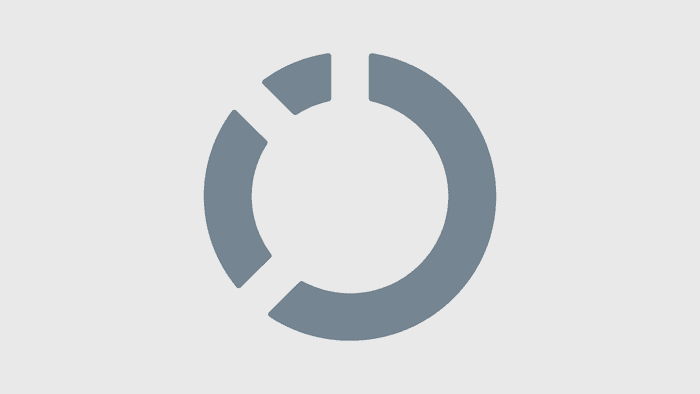10 Wearable Health Tech Devices To Watch
Wearable medical technology is becoming a hot commodity. As these devices come to market, they have the potential to help both patients and clinicians monitor vital signs and symptoms.

Wearable health technology is drawing serious attention in the press and for good reason. Such devices will likely transform medical care in unimagined ways, turning science fiction in science fact. The latest wearable health gadgets sport new capabilities and sleekness. From headsets that measure brainwaves to clothes that incorporate sensing devices, personal health monitoring is the wave of the future.
ABI Research has projected that by 2016, wearable wireless medical device sales will reach more than 100 million devices annually. The market for wearable sports and fitness-related monitoring devices is projected to grow as well, reaching 80 million device sales by 2016.
Devices worn on or close to the body are expected to produce the most ground-breaking innovations, according to IMS Research, the research partner of Wearable Technologies, and Theo Ahadome, senior analyst at IMS Research. "There is increasing clinical evidence of the value of continuous physiological data in managing chronic diseases and monitoring patients' post-hospitalization," Ahadome said. "As a result, a growing number of medical devices are becoming wearable, including glucose monitors, ECG monitors, pulse oximeters, and blood pressure monitors."
Ahadome added that the latest figures projected for wearable technologies speak volumes about where the sector is headed. The market for wearable technologies in healthcare "is projected to exceed $2.9 billion in 2016, accounting for at least half of all wearable technology sales," he said.
Technology such as Preventice's BodyGuardian Remote Monitoring System or Avery Dennison's Metria Wearable Technology is setting the stage to seamlessly deliver patient data to doctors. Textiles included in AiQ Smart Clothing bypass the need for add-on sensors by incorporating them in clothes to collect data.
Bluetooth technology is key in systems such as 9Solutions IPCS, which uses it to track elderly patients' movements and send health measurements to caregivers. BodyTel uses the same Bluetooth technology to allow patients to wirelessly send measured body values to their doctors.
Click through our slideshow to see what the future of wearable health monitors might hold for you.
9Solutions IPCS is a wireless Bluetooth and SaaS-based real-time locating system (RTLS) and application platform that enables real-time tracking of people and equipment. The 9Solutions system, which works with cell phones, can be used to protect "lone employees" -- medical and other personnel who might need assistance while doing their jobs.
9Solutions also targets healthcare patients, who can use the product as a sophisticated nurse call button. Residents of an assisted living facility, for instance, can be tracked -- and can call for help -- anywhere they go on the facility's premises while wearing a system tag such as a necklace or wristwatch. The system can notify caregivers if a resident has entered an unsecured area.
The technology also can save personal activity profiles for each user and if any differ too much from the user's long-term activity, it can automatically send an alarm to caregivers. The system can work with older equipment such as traditional rope pulls, but it's its wireless location and activity monitoring options that set it apart. The 9solutions IPCS isn't available yet in the U.S.
AiQ develops "smart textiles" for a range of custom apparel, including a vital sign monitoring system in a t-shirt. The BioMan t-shirt has ribbed "smart sleeves" that measure the user's heart rate, respiration rate and skin temperature. The garment can be further customized to measure skin moisture and electrophysiological signals such as EKG, electroencephalography (EEG), or electromyography (EMG). AiQ sells other specialized "smart" jackets and vests. For instance, the SolarMan vest has built-in solar panels capable of recharging the user's electronic devices. The CameraMan jacket has a built-in HD camera in the left breast pocket area, and the ArmorMan pullover has padding that stiffens on contact to protect the wearer.
The Metria Wearable Sensor is another new tool aimed at helping the healthcare industry shift toward prevention. It works like this: The user attaches the wearable sensor, which uses "skin-friendly" adhesive; the sensor collects data, such as the number of hours slept and breaths per minute; and the sensor wirelessly transmits a summary of the data to the user's or caregiver's device, such as a smartphone.
Possible applications for the remote technology include health and wellness, sports and fitness, and cardiac monitoring, according to maker Avery Dennison. The Metria Wearable Sensor Technology is available in the U.S.
BodyTel products offer the convenience of home diagnostics to people who have chronic illnesses or simply hope to avoid health problems by making lifestyle changes advised by a doctor. The devices include a blood glucose meter, a blood pressure meter, and scales. Each has a built-in Bluetooth module that automatically sends readings to the user's home base station or cell phone. The station then forwards the data to a secure online database using a protected Internet connection.
In addition to viewing the data, doctors have the option of having an alert sent to them under defined conditions; when data exceeds or falls below a pre-defined threshold, the doctor is informed. This lets medical personnel help quickly in the event of hyperglycemia or hypoglycemia in a patient with diabetes, for instance. BodyTel products are available in the U.S.
Danfoss PolyPower A/S is working to develop and commercialize its electroactive polymer technology, called PolyPower. The company's first design focuses on stretch sensors that safely and precisely measure displacement on or close to the human body, such as motions, breathing, swelling, posture, and so on. The sensors are made of PolyPower -- the company's Dielectric Electroactive Polymer (DEAP) material -- combined with electrical connections.
The capacitive principle of the sensor, the company said, gives it high accuracy and repeatability so it can be integrated with textiles and wearable devices. This makes it ideal for applications within the medical and sports industries. In addition to the Danfoss PolyPower A/S, the company is offering OEM solutions in the U.S.
Imec's wearable electroencephalography (EEG) headset and EKG patch keep tabs on your brain and heart activity, respectively. Your heart rate and 3D-accelerometer data are stored in the system or streamed to a smartphone. Imec also has developed a wireless EEG headset prototype. The system uses impedance monitoring and active electrodes to increase the quality of EEG signal recording, compared to former versions of the system. The data is then transmitted in real time to a receiver located up to 10 miles away from the system. The Imec development services are available in the U.S. as prototypes only. Pictured above is a user demonstrating the Imec EEG headset.
Moticon is the world's first fully integrated and wireless sensor insole, according to the company. The insole can be used in any shoe to measure the distribution and motion parameters for patients and athletes. It's currently used for everyday patient monitoring, rehabilitation measures, and for training analysis in sports. The sensor insole, which is fitted with firmware that communicates with PC software via a USB radio stick, is easy to use and doesn't require special training. In 2010, Moticon was awarded the International Innovation Award for product of the year at the ISPO Sporting Goods Trade Fair. Moticon is commercially available, but distribution in the U.S. is still in the works.
Nuubo is a new-generation wireless and remote cardiac monitoring platform. The company designs, manufactures and sells a portfolio of wearable medical technologies for cardiac prevention, diagnostics, and rehabilitation solutions. The tools are based on a wireless ECG remote monitoring platform that incorporates proprietary biomedical e-textile technology called BlendFix Sensor Electrode Technology. Nuubo is commercially available, but U.S. distribution is yet to be determined. Pictured above is an example of a Nuubo device being used to monitor the heart rate of an athlete.
TmG-BMC lets users monitor muscle fatigue while exercising using a muscle contraction (MC) sensor. The company's newest product is its MC sensor, which measures muscle mechanics directly and selectively under different loads and during exercise. It provides feedback on individual muscles for contraction and relaxation speeds, as well as produced force.
Direct selective muscle assessment offers a new approach to injury prevention, rehabilitation monitoring, and training optimization particularly in speed development, according to the vendor. TmG-BMC is available in the U.S. Pictured above is an example of a 5mm sensor.
Preventice, a developer of mobile health applications and remote monitoring systems, recently announced its BodyGuardian Remote Monitoring System (RMS), which has received 510(k) clearance from the FDA. The system was developed in collaboration with Mayo Clinic and uses algorithms to support remote monitoring for patients with cardiac arrhythmias. It lets doctors monitor key biometrics while patients can go about their daily lives.
A small sensor attached to the patient's chest collects data, including ECG, heart rate, respiration rate, and activity level. The device then transmits data to physicians via mobile phone technology. This remote monitoring of the patient provides a continual connection between patients and their care teams. Pictured above is the BodyGuardian system displayed on multiple mobile devices, as well as the wearable body sensor.
Preventice, a developer of mobile health applications and remote monitoring systems, recently announced its BodyGuardian Remote Monitoring System (RMS), which has received 510(k) clearance from the FDA. The system was developed in collaboration with Mayo Clinic and uses algorithms to support remote monitoring for patients with cardiac arrhythmias. It lets doctors monitor key biometrics while patients can go about their daily lives.
A small sensor attached to the patient's chest collects data, including ECG, heart rate, respiration rate, and activity level. The device then transmits data to physicians via mobile phone technology. This remote monitoring of the patient provides a continual connection between patients and their care teams. Pictured above is the BodyGuardian system displayed on multiple mobile devices, as well as the wearable body sensor.

Wearable health technology is drawing serious attention in the press and for good reason. Such devices will likely transform medical care in unimagined ways, turning science fiction in science fact. The latest wearable health gadgets sport new capabilities and sleekness. From headsets that measure brainwaves to clothes that incorporate sensing devices, personal health monitoring is the wave of the future.
ABI Research has projected that by 2016, wearable wireless medical device sales will reach more than 100 million devices annually. The market for wearable sports and fitness-related monitoring devices is projected to grow as well, reaching 80 million device sales by 2016.
Devices worn on or close to the body are expected to produce the most ground-breaking innovations, according to IMS Research, the research partner of Wearable Technologies, and Theo Ahadome, senior analyst at IMS Research. "There is increasing clinical evidence of the value of continuous physiological data in managing chronic diseases and monitoring patients' post-hospitalization," Ahadome said. "As a result, a growing number of medical devices are becoming wearable, including glucose monitors, ECG monitors, pulse oximeters, and blood pressure monitors."
Ahadome added that the latest figures projected for wearable technologies speak volumes about where the sector is headed. The market for wearable technologies in healthcare "is projected to exceed $2.9 billion in 2016, accounting for at least half of all wearable technology sales," he said.
Technology such as Preventice's BodyGuardian Remote Monitoring System or Avery Dennison's Metria Wearable Technology is setting the stage to seamlessly deliver patient data to doctors. Textiles included in AiQ Smart Clothing bypass the need for add-on sensors by incorporating them in clothes to collect data.
Bluetooth technology is key in systems such as 9Solutions IPCS, which uses it to track elderly patients' movements and send health measurements to caregivers. BodyTel uses the same Bluetooth technology to allow patients to wirelessly send measured body values to their doctors.
Click through our slideshow to see what the future of wearable health monitors might hold for you.
About the Author(s)
You May Also Like






